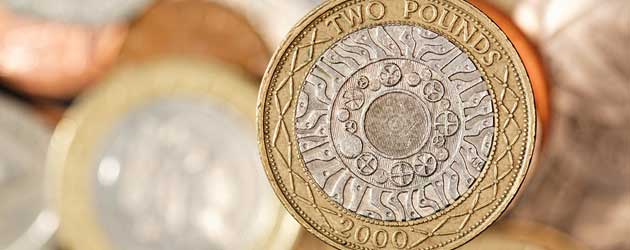
It was a mixed day of news for the Euro yesterday as German Inflation remained soft, German ZEW data printed below forecast, Eurozone Industrial Production improved, Fitch upgraded Greece’s credit rating and the Eurogroup of Eurozone Finance Ministers confirmed that insured deposits of up to €100,000 will be protected during future bailouts and banking collapses.
In response to the variegated European dataset, the Pound to Euro exchange rate (GBP/EUR) fell from a highpoint of 1.1800 to 1.1770 last night.
With speculation growing that the European Central Bank is planning to implement new measures to support the struggling Eurozone economy, the single currency has come under a little bit of pressure recently. The fact that German inflation printed below the 2% target again during April means that the ECB has room to manoeuvre if it deems necessary. German Consumer Prices fell by -0.5% last month, keeping the headline year-on-year inflation print at a concerning 1.2%.
The ECB cut its benchmark interest rate to a new record low of 0.50% last week and Governing Council Member Ignazio Visco said that the Central Bank is “technically prepared” to bring the deposit rate into negative territory in order to drive banks to lend to the real economy, rather than park their funds in the safety of the ECB’s overnight deposit facility.
May’s German Economic Sentiment ZEW survey was predicted to rise from 36.3 to 40.0, but the index disappointed expectations printing at a minutely improved 36.4. The underwhelming result suggests that whilst the German economy is getting back to speed, the rest of the currency bloc is lagging behind, which is constricting German growth prospects. David Brown of New View Economics said:
“Germany and the troubled Eurozone economies are poles apart in terms of where they are in the recovery cycle and Eurozone policymakers should not confuse them”.
Industrial Production in the Euro area expanded 1% during March, smashing expectations of a less impressive 0.5% rise. The positive print means that Industrial Output rebounded from a -2.1% contraction in the final three months of 2012 to post an improvement of 0.3% in the first quarter. However, Chris Williamson of Markit Economics warned that:
“Any improvement…looks likely to be short-lived, as the business surveys have already started signaling a renewed weakening”.
Sentiment towards the single currency improved slightly as the Eurogroup confirmed that small savers with deposits up to €100,000, insured by EU law, will not have their funds tapped under any circumstances. Following the bodged Cyprus bailout package, where at one point insured depositors were set to face a 6% tax levy, European savers had become worried regarding the safety of their funds. These fears were put to bed yesterday as Irish Finance Minister Michael Noonan, who was chairing the conference, said:
“There was a general agreement that deposits below €100,000 in any resolution will be sacrosanct”.
However, nothing was said of uninsured deposits over €100,000, which meant that large-scale investors remained slightly cautious and this capped the Euro’s gains at 0.3 cents for the day.
GBP/EUR was also influenced by Fitch’s decision to upgrade Greece’s sovereign bond rating one notch from CCC to B-. The credit rating agency said that the embattled Hellenic nation is far less likely to exit the Eurozone now due to progress in Athens. The Greek government was applauded for implementing the necessary structural reforms to help bring down its colossal debt-to-GDP ratio, which currently stands close to 160%. Fitch said:
“The Greek economy is rebalancing: clear progress has been made towards eliminating twin fiscal and current account deficits and…the risk of a Eurozone exit has receded”.
The Eurozone GDP print and the Bank of England’s Quarterly Inflation Report should dominate markets sentiment towards the Sterling / Euro exchange rate today, whilst the UK Employment figures could also have an important impact.

Comments are closed.